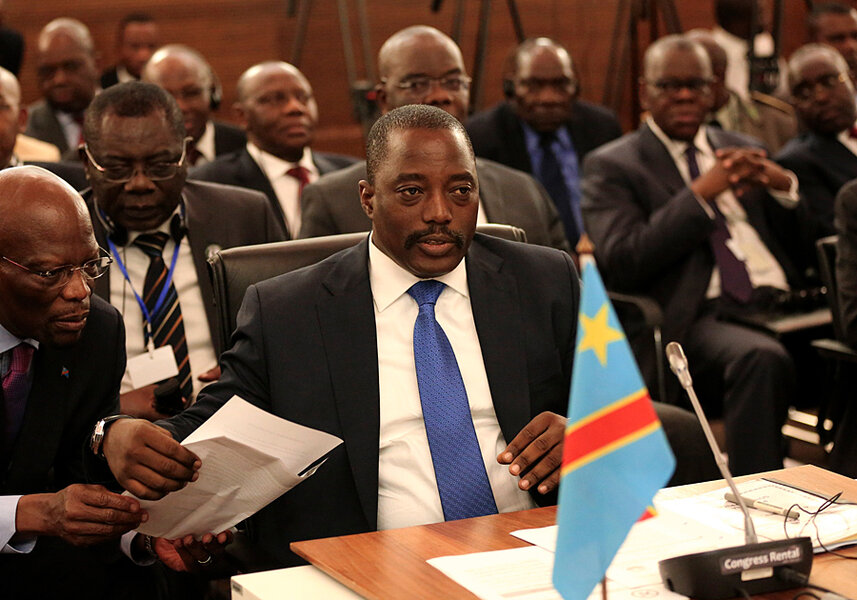Congo leader Kabila must choose between reform – and survival
Loading...
A version of this post originally appeared on the Congo Siasa blog. The views expressed are the author's own.
In Kinshasa in early October, President Joseph Kabila gave a speech in which he announced, in the interest of national unity, the formation of a "government of national cohesion."
Now, a month later, there are signs that Mr. Kabila will move soon to set up this government. When he does so, he will have a difficult choice: keep the current prime minister and maintain course on state reforms. Or bring in someone who can help him rally the political elite around him.
Prime Minister Matata Ponyo, who has been in office since April 2012, has been able to make modest progress on improving governance, especially with regards to the economy and state finances. He is particularly popular with the donor community, who think that he has been able to name some competent technocrats to various ministries and has inspired a new élan in government. Many soldiers and state officials are now paid directly through bank accounts and through mobile cash transfers; ministers are more transparent in their interactions with journalists; and inflation has remained negligible. (Although the cours des comptes recently released a damning audit of state finances.)
If Kabila wants someone who can keep up this progress, then Matata and his team might be the best bet.
But is this Kabila's priority? The president is about to plunge into a difficult period in the run-up to the end of his term in 2016. Due to constitutional term limits, he will then have to hand over the reins to someone else or change the constitutional term limits -- something explicitly forbidden by Article 220 of the 2006 constitution.A third option is also increasingly being floated: deferring elections, much like [former President Laurent] Gbagbo did in the Ivory Coast, for several years, using the national census and funding problems as a pretext.
As the president enters into this turbulence, it may be more important to have a prime minister who can rally the fractious political elite around him, so they can back whatever delays or legal changes he wants to push through.The current prime minister is a competent technocrat, but (in part, precisely because he comes from a technical background) he does not have much of a political base or the ability to mobilize key power-brokers. What's more, he has angered many bigwigs by clamping down on some of the corruption rackets they were running, and by insisting that heads of political parties are now allowed to participate in the government themselves.In other words, he has made a lot of enemies who are now clamoring for his departure, and the president may be looking for a different skill set in his next PM.







